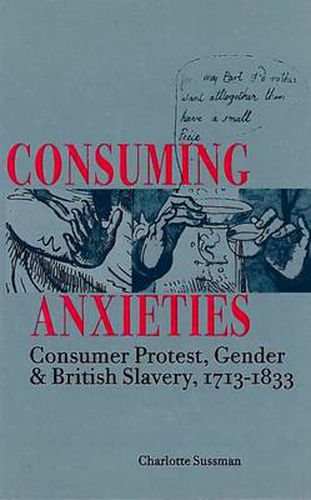Readings Newsletter
Become a Readings Member to make your shopping experience even easier.
Sign in or sign up for free!
You’re not far away from qualifying for FREE standard shipping within Australia
You’ve qualified for FREE standard shipping within Australia
The cart is loading…






Boycotts are so commonplace these days that one hardly notices them, and yet they have a fascinating history, one closely connected to the growth of the British Empire and the birth of a consumer society. Consuming Anxieties asks why this mode of political protest has proved so influential over the past two hundred years, and why it was particularly useful in anticolonial struggles. It answers these questions through new readings of literary works by Jonathan Swift, Tobias Smollett, and others, as well as through investigations of eighteenth-century political and economic discourses connected with consumer culture and colonialism. The book examines the history of consumer protests against colonialism from 1713 to 1833 from the Treaty of Utrecht to the abolition of slavery in the British Caribbean. Recognizing the impact of consumerism on perceptions of the colonial periphery during this period reveals the crucial role of commodity fetishism in colonialist ideology. At the same time, acknowledging the effects of colonial and mercantile expansion on domestic consumer practices explains some of the anxiety surrounding colonial commodities. Women played a crucial role in these dynamics, and this book s analysis of gender illuminates the ways in which colonialism permeated not only the public sphere of politics and trade, but also the seemingly private realms of domesticity and sentiment.
$9.00 standard shipping within Australia
FREE standard shipping within Australia for orders over $100.00
Express & International shipping calculated at checkout
Boycotts are so commonplace these days that one hardly notices them, and yet they have a fascinating history, one closely connected to the growth of the British Empire and the birth of a consumer society. Consuming Anxieties asks why this mode of political protest has proved so influential over the past two hundred years, and why it was particularly useful in anticolonial struggles. It answers these questions through new readings of literary works by Jonathan Swift, Tobias Smollett, and others, as well as through investigations of eighteenth-century political and economic discourses connected with consumer culture and colonialism. The book examines the history of consumer protests against colonialism from 1713 to 1833 from the Treaty of Utrecht to the abolition of slavery in the British Caribbean. Recognizing the impact of consumerism on perceptions of the colonial periphery during this period reveals the crucial role of commodity fetishism in colonialist ideology. At the same time, acknowledging the effects of colonial and mercantile expansion on domestic consumer practices explains some of the anxiety surrounding colonial commodities. Women played a crucial role in these dynamics, and this book s analysis of gender illuminates the ways in which colonialism permeated not only the public sphere of politics and trade, but also the seemingly private realms of domesticity and sentiment.